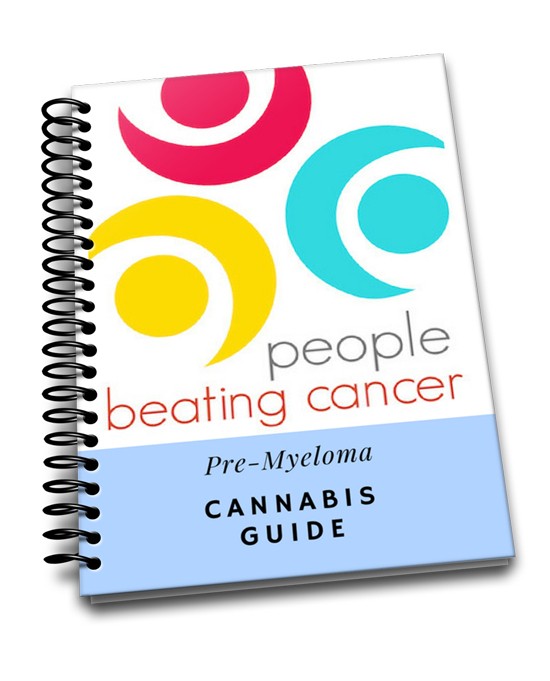Leave a Comment:
5 comments
[…] MGUS and Genetic Risk of Progressing to Multiple Myeloma […]
ReplyHello I was diagnosed with MGUS , about a 1 year ago with light chains
As explained , I have about a 5 per cent chance of the condition progressing, as far as I am aware no-one else in the family has suffered from this, I am not keen at all to go on this ‘wait + watch ‘ thing , as I would not consider any treatment whatsoever, as I consider cancer treatment , barbaric to say the least , having seen what friends and family have gone thru , all not alive may I add
I have decided not to return for 6 monthly checks, but indeed to forget about it and carry on with life
I would be interested in possible foods that would hold the condition back and general tips on body maintenance
Very best wishes + thanks Gillian
Hi Gillian,
Several things. First and foremost, I am sorry to learn of your MGUS diagnosis. I and lots of other pre-MM patients agree with you- taking a “watch and wait” approach is difficult. Keep in mind that there are evidence-based non-toxic therapies that research has shown can reduce the risk of pre-MM progressing to full blown MM.
Secondly, it is reasonable to believe that you can live with MGUS for years, even decades and not progress to cancer. Having your blood work aka blood tests done every six or 12 months simply gives you an idea of where you are physically. For example, I live with MM and the possibility of relapse. Having my blood checked annually helps me understand where I am. No, I don’t like living this way but I prefer knowing more not less.
Lastly, after repeated requests like your I decided to create a program of non-toxic therapies for those diagnosed with pre-MM (MGUS, smoldering multiple myeloma, SMM or a single bone plasmacytoma SBP). The program is inexpensive and comes with a 30 day money back guarentee.
I have linked both the webinar (that’s me…) and the online store- let me know if you have any questions.
Pre-MM Basic, Premium, Guides-
Free Pre-MM webinar (on the far right)
Hang in there,
David Emerson
ReplyI was recently diagnosed with Non-IgM MGUS (IgG, IgA or IgD MGUS), although I have not received back my bone scans to see if I have lesions yet, but was told that this is the most common type of MGUS and has the “potential” to progress to multiple myeloma (1% each year as I get older). So I am 48 (as of 10/26), so I guess that means that when I am 58, I have a 10% change of progressing to mm, and so on? Now for reasons I will not overly explain here, I was always against marijuana, but now my independent research is showing that this may actually help me, I am intrigued. I have an appointment with my cancer doctor tomorrow for my bone scans and a 2nd opinion at Mayo on 11/27, but I really would like to bring this up to my doctors. Also, I initially went in because I thought I had RA because my bones hurt all the time. I want to try medical pot, but I don’t smoke at all so I would not want to ingest it this way. Also I live in Minnesota so I don’t think it is legal here or you have to have some other serious desease (I have not confirmed this yet). I would like feedback on this. From those with MGUS or MGUS that progressed to mm.
ReplyHi Robin-
I am sorry to read of your MGUS diagnosis. Yes, MGUS, pre-MM blood disorder, and has a 1% annual risk of developing into frank MM. 48 or 49 (happy birthday BTW) is young. You are correct to think about the long-term picture.
The Mayo Clinic or actually Dr. Robert Kyle, is the father of MGUS. Dr. Kyle sort of discovered it. I think he even came up with the name…I’m only trying to make the point that a second opinion at Mayo is a good idea. Your current Dr. should not dispute that.
Your challenge is that Mayo will tell you that you have a blood disorder and there is nothing you can do/no therapies you can undergo. I know of other MGUS patients who disagree.
Re medical marijuana aka CBD oil. You are correct in thinking that medical marijuana reduces pain. But it also has been shown to enhance bone mineral density. Smoking marijuana does not get enough cannabinoids into the blood to make a difference. CBD oil can.
Further, there a several other evidence-based bone strengthening therapies as well as evidence-based, non-toxic therapies shown to reduce the risk of MGUS.
My understanding is that medical marijuana is legal in Minnesota. Without further research I cannot say if/how/where you can obtain the right strain, percentage of cannabinoids vs. THC, etc. I don’t know if you need a doctor’s prescription to obtain CBD oil.
To summarize this feedback. MGUS can be slowed or even reversed. Please go to Margaret’s Corner (Margaret is a blogger who has MGUS and has controlled it for more than 18 years. Please consider the pre-MM cancer coaching program.
Let me know if you have any questions.
David Emerson
Reply



